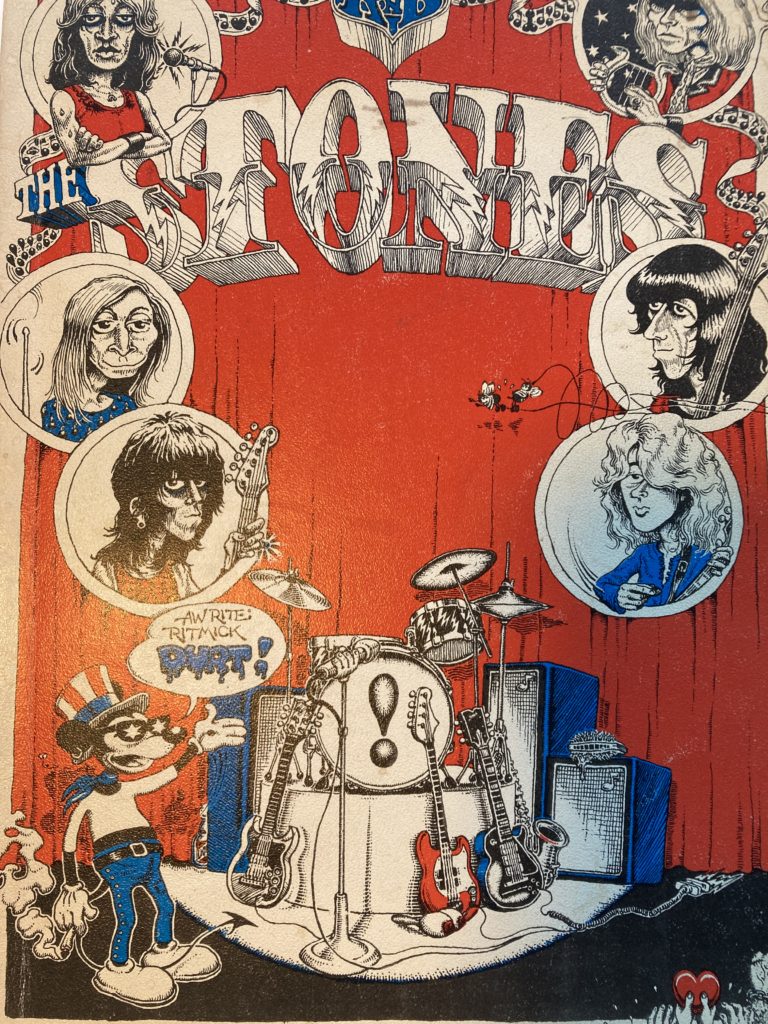Tuesday, August 24, 2021

The Rolling Stones were founded almost sixty years ago by Brian Jones, Keith Richards, Mick Jagger, Bill Wyman, Charlie Watts, and Ian Stewart. Stewart was soon relegated to being their road manager and an occasional sessions musician. Jones proved to be the most fragile member of the band, even if he was the most brilliant musician. Stewart died in the 1980s; and Wyman left the band a few years after the “Steel Wheels” album got things rolling again in the late 1980s. Another seismic shift has hit the original line-up. The news is breaking that Charlie Watts, an aspiring jazz drummer in the early 1960s who was drawn into the throes of the world’s most controversial rock and roll band, has died in a London hospital earlier today. For over a half-century Watts aligned the rhythms of The Rolling Stones with his stalwart cadences, endearing himself to fans with his self-effacing demeanor. Managing for the most part to avoid the worst excesses of popular music’s notorious life style, Watts was, in fact, the bemused foil to the seductive grandiosity of the band’s lead singer. Groupies were not his thing. He first met his wife almost sixty years ago, and the marriage endured. Along with his widow and his bandmates, a daughter and grandchild are also his immediate survivors.
For all of his prominence as the drummer of the world’s self-labelled “greatest rock band,” Watts’s original musical interest was jazz, and in the 1990s he used the money he made from drumming with the Rolling Stones to form a jazz orchestra. His interest in jazz was long known, not that he was the only member of the band with such inclination. Jones is said to have offspring after Julian “Cannonball” Adderley out of admiration for that musician.
Watts’s choices in percussion made significant contributions to the distinctive sound of his bandmates. One only has to listen to the inexhaustible resonance of “I Can’t Get No Satisfaction” to hear how Watts’s brief but propulsive solo interlude makes all the difference in how that “Hey Hey Hey” chorus churns the song headlong into the next full verse. Rae Armantrout has written about how much of an impact that song had on her as a young person living in San Diego in the summer of 1965, and I can vouch that it had an equal impact on me in Imperial Beach, when that tiny, working-class city had yet to be cut in half by an annexation to San Diego.
In a recent interview, Watts talked about his refusal to get a “smart” phone and how his steadfast allegiance to a flip phone irritated Jagger because the band’s lead singer and songwriting collaborator wasn’t able to send Watts documents and drawings for immediate approval. For someone still using a flip phone at that point, I felt as if my obstinacy had received a major social endorsement. Thank you, Charlie, for one last gift!
The Stones are set to go on tour, but I suspect that it will be a more melancholy event than even the remaining members of the band anticipate.
R.I.P. Charlie Watts (1941-2021)
Published, August 24, 2021, 10:34 a.m.
Post-Script: I first heard the news of Watts’s death from an article on Yahoo, which was far more comprehensive than anything in the New York Times or the LA Times. When I returned home, I found an expanded version of the New York Times obit, which concluded with a comment that Watts made about his relationship as a performing musician to jazz music:
“I’ve always wanted to be a drummer,” he told Rolling Stone in 1996, adding that during arena rock shows, he imagined a more intimate setting. “I’ve always had this illusion of being in the Blue Note or Birdland with Charlie Parker in front of me. It didn’t sound like that, but that was the illusion I had.”
Apropos of the above self-reflection by Watts, one might listen in on a brief broadcast commentary from NPR:
https://www.npr.org/2021/08/24/836037264/charlie-watts-rolling-stones-drummer-dies
****************
https://www.yahoo.com/entertainment/rolling-stones-drummer-charlie-watts-dies-at-age-80-164430812.html
https://www.latimes.com/obituaries/story/2021-08-24/charlie-watts-dead-rolling-stones-drummer
***********
Post-Post-Script:
One example of Watts’s drumming that I have not seen cited in any other article is on the song “Complicated,” which appeared on the American version of “BETWEEN THE BUTTONS” in 1967. His drumming, in fact, is not in the background but is instead at the forefront in defining the gendered resiliency that is at the core of the song’s theme. For any young teenager who aspires to be an accomplished drummer in a rock band, I would recommend listening to Watts’s work on this song and then practicing until you get it down perfectly. Once at that point, then start doing variations on it. Once you have deviated enough from it to make it unrecognizably familiar, perform it for the other musicians in the band and tell them that their task is to write a song with that beat. Only once that song is recorded should you play “Complicated” for them.
 About Bill Mohr
About Bill Mohr